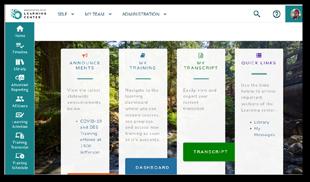
8 minute read
UPDATES AND INFORMATION
UPDATES & INFORMATION
Grant Update - Risk/Safety Screening Tools
Advertisement
September 1, 2021, APS released a Management Bulletin (MB) to incorporate a standardized safety screening tool into APS practice. Developing a standardized safety tool was a goal and outcome measure expected under the 2019 Elder Justice Act - Administration for Community Living (ACL) grant that APS received. The tool aligns with national standards and to meet APS’ stated goal of addressing safety concerns for alleged victims. The next phase of this effort will include the release of a build of the safety screening tool into TIVA2 to replace the currently implemented paper version. The digital version of the safety screening tool is expected to be available on the planned April 2022 TIVA2 release.
Another standardized screening tool that is a main objective of our initial ACL grant is the risk screening tool. Risk screening differs from safety screening in several ways, but the most important is that a risk screening identifies conditions, behaviors, or circumstances that create situations where alleged victims are at an increased chance of not remaining healthy or stable in their environment. When screening for risk, APS is screening to understand the context an alleged victim exists within and the end goal is to identify tailored resources, supports, or referrals that APS may be able to offer the alleged victim to improve their condition. All staff will have access to an online training of the risk screening tool sometime in the fall and the tool is expected to become part of APS policy for all investigations sometime in winter.
Grant Update - UW Forensic Interviewing Videos
Forensic Interviewing for alleged victims continues to enroll and train staff in this approach through the University of Washington (UW). In response to feedback the training team received from participants, our program will be expanding our partnership with the UW to include the development of an additional 3 forensic interviewing training videos. For those that have not had the opportunity to take the training, on day 3, a video featuring an APS investigator completing an interview with an actor portraying an alleged victim is a highlight to demonstrate the real application of the skills taught in the training. In feedback forms, APS staff expressed the desire for additional examples, especially given that most freely available videos online heavily feature children. APS leadership and the training unit have started the process of developing these additional videos and is working to identify APS staff that will serve as our interviewers. The new videos will be completed by the end of the summer, and we look forward to incorporating them into the existing forensic interviewing training and we are exploring new ways that we will be able to share the content.

Regional Support - SHPC Support for Regions
The Outreach and Engagement team has been working closely with each region to identify areas where they can offer the most support. Because each region has different needs, the team has been tailoring support based on guidance received from both regional leadership and the teams they have met with so far. Some of the areas that the team has been involved with over the last several months have been; staff recruitment, marketing materials development, identification of contractors for intervention services, onboarding of vendors for intervention services, community resource identification and dissemination, and staff training support. If you’d like to have one of the Outreach and Engagement Specialists attend a unit meeting or if you’d like to hear more about the ongoing projects, don’t hesitate to contact them or their supervisor directly.t
Region 1 - Angela Allen Angela.Allen@dshs.wa.gov Region 2 - Chasity Smith Chasity.Smith@dshs.wa.gov Region 3 - Nicole Bullis Nicole.Bullis@dshs.wa.gov HQ - Victoria Gawlick Morse Victoria.GawlikMorse@dshs.wa.gov For more information on resources to support you and those we serve go to the APS SharePoint. Statewide Staff Supports - Shared Interest Staffing
In 2019, a workgroup comprised of both field and headquarters staff met to discuss ways to support field staff on topics including; complex cases, alleged victims where decision making is questionable, vulnerable adult status or perceived inabilities are difficult to discern, multiple screen outs, or other case complexities, to name a few. From the workgroup, a Shared Interest Staffing was developed and implemented. This staffing is available for any staff to discuss case ideas, collaborate, and provide a forum for shared decision-making. The group may consist of people from regional leadership, investigative staff, supervisors, regional program managers, HQ staff, and other staff that may be a part of the investigative or protective services process (DDA, HCS, LE, mental health etc.). These staffings are scheduled to occur every other Friday and are open to any APS staff member who would like to use the resource. For additional information, staff should review MB A20-003 and if there are outstanding questions, should contact their Program Manager. Check out this link for more information.
Update to Chapter 6 - APS
The Long-Term Care Manual Chapter 6 (Chapter 6 - APS) was updated and released on March 4, 2022, with changes taking effect on March 7, 2022. This latest revision was the result of a year-long effort by APS policy staff and Executive Leadership to carefully analyze each section of Chapter 6. The goal for this release was to remove unnecessary or repetitive language, align the material with business workflow, and update policy and procedure to address necessary changes identified in 2021. This is expected to be the final release of APS policy and procedure as Chapter 6 in it’s current format. As we look to the future, APS policy and procedure will transition to a new platform to improve the user experience. The intent is to make it easier for staff to search and identify relevant policy and procedure, along with tracking policy changes over time. Stay tuned for this release later in 2022.
Take a moment to review the new version of Chapter 6 to ensure you are up to date on the latest policy and procedure.
Washington State Learning Center
It’s been just over a year since the Learning Center has come online and since that time there has been a lot to learn for how to navigate and use the system. To limit the number of clicks it takes to get to the information you want to see most often there are new “short cuts” on the control panel side bar on your Learning Center dashboard. Depending on your Learning Center role you may see one or more of the following on the side bar:
• Advanced Reporting • All Users
• Learning Activities • Training Transcript • Training Schedule As always, you can find more tips, tricks, and resources on the Learning Center SharePoint site.

If you get stuck or have questions you can’t find an answer to on the Learning Center SharePoint, please submit a Help Request with the details of the problem and someone should respond within 48 hours.
UPDATES & INFORMATION CONTINUED...
Client Resources Corner - Resources for Serving Clients/Victims
>> Healthcare <<
Health centers are community-based medical homes that serve an underserved patient population and provide access to a range of comprehensive services on a sliding fee scale. A sliding fee scale means that these centers provide care based on the ability of the patient to pay. Many of these centers offer services beyond primary care including; mental health, dental, pharmacy, vision, case management, patient navigation, and even some specialty care like cardiology or dermatology. These centers can be an invaluable resource for individuals who have limited access to a medical home including nonEnglish speaking, individuals experiencing homelessness, agricultural workers, rural populations, and other groups that may have lower resources. At the core of every center is the mission to coordinate care in order to reduce health disparities that may be present amongst their patient populations. To find a center and read about the services they offer, you can use the Health Resources and Services Administration’s (HRSA) clinic locator tool.

>> Food Insecurity <<
Food Lifeline is an organization dedicated to ending hunger in Washington. They directly provide food to hundreds of thousands of individuals experiencing food insecurity through partnerships with food banks, shelters, and various other community food programs. Their website includes a state-wide food map where visitors can specify the type of meal or food they are looking for including: hot meals to go, prepackaged boxes, shelf-stable/no-cook meals, and home delivery. To find out what’s available in your area, use their food map tool.

>> Caregiver Support for Veterans <<
Caregiver Support Program is two programs to serve and support Veterans and their caregivers across all eras. The Program of General Caregiver Support Services (PGCSS) serves caregivers of enrolled Veterans of all eras and provides peer support mentoring, skills training, telephone support, online programs and referrals to available resources to caregivers of Veterans. The Program of Comprehensive Assistance for Family Caregivers (PCAFC) is for Veterans injured before 5/7/1975 or after 9/11/2001 and provides peer support mentoring, skills training, telephone support, online programs, referrals, a financial stipend, health insurance, and beneficiary travel to caregivers. There is an online application process to access services, but there are multiple ways to get support to complete the application. Read more about the programs and the applications process. For more information on these and other programs, you can visit the U.S. Department of Veterans Affairs Caregiver Support Program page.











